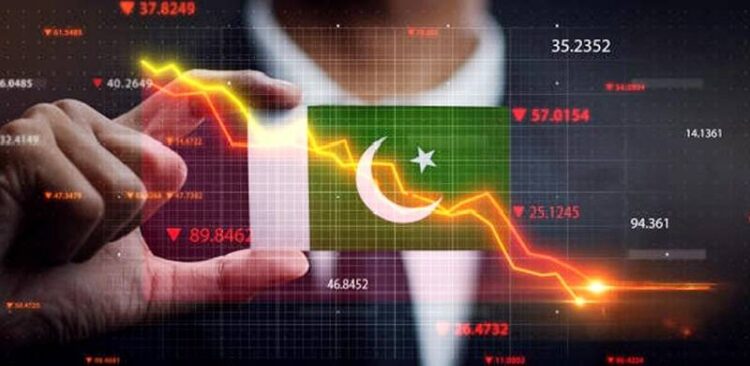Introduction:
Pakistan faces a formidable challenge in 2024—the looming threat of an existential economic crisis. The nation’s economy is grappling with a myriad of issues, from dwindling exports to soaring inflation and a debilitating debt burden. This crisis, exacerbated by regressive monetary and fiscal policies, poses a severe risk to the country’s economic stability.
Caretaker govt introducing ‘Contract Base Smartphones Policy’ from Jan 15: Dr. Umar
Afzal Tauseef’s 9th death anniversary: A tribute to a literary icon
For more such opinions & blogs, click here
Economic Downturn:
The crux of Pakistan’s economic crisis lies in its inability to generate sufficient output, resulting in a consistent decline in exports. Stringent International Monetary Fund (IMF) conditions, eliminating subsidies, further exacerbate the economic woes. The surge in electricity, petrol, and diesel costs has led to skyrocketing inflation, diminishing consumer buying power, and a subsequent decline in domestic goods sold. This domino effect has prompted the closure of numerous production units, leaving a growing number of individuals unemployed.
Mounting Debt:
As of December 2022, Pakistan’s external debt and liabilities stand at a staggering $126.3 billion. A significant portion of this debt, approximately $97.5 billion, is directly attributed to the government. An additional $7.9 billion is owed by government-controlled public sector enterprises to multilateral creditors, creating a complex web of financial obligations.
Security forces kill 5 terrorists in Mir Ali, North Waziristan
COAS vows to eliminate mafias with support of nation
Categorization of Creditors:
Pakistan’s creditors fall into four main categories: multilateral debt, Paris Club debt, private and commercial loans, and Chinese debt, as reported by the United States Institute of Peace on April 6, 2023.
Challenges in Repayment:
To avert a sovereign default, Pakistan relies heavily on earnings from exports, foreign direct investment, and remittance inflows from foreign workers. However, projections indicate that these inflows will not match the import bill and the mounting debt repayment pressure.
South Africa Files Genocide Case Against Israel at World Court
Kazakhstan Removes Afghan Taliban From Banned Group List
Limited Financial Options:
Pakistan’s economic managers find themselves with limited options to address the external debt burden. The first option is seeking fresh loans and debt rollovers. However, due to downgrades by international credit rating agencies, the country’s access to the sovereign financing market is constrained. Consequently, Pakistan must depend on Middle Eastern partners and China, not only for debt rollovers but also for securing fresh loans to avert a default [summarization by an Intl. org.]

Consequences of Continued Debt Repayment:
The continuous focus on repaying debts poses a significant threat to domestic development projects, leaving little room for investment in critical sectors. This scenario offers no incentives for struggling industries, leading to the closure of more production units and exacerbating unemployment.
For more such opinions & blogs, click here
UN Security Council Adopts Resolution on Afghanistan
Mushaal condoles demise of Prof Shawl
Conclusion:
Pakistan stands at a critical juncture in 2024, facing an existential economic crisis that demands immediate and strategic intervention. The nation must navigate the complex web of debt, explore alternative sources of financing, and implement comprehensive economic reforms to steer clear of a potential economic collapse. The collaboration with international partners, particularly in the Middle East and China, will play a pivotal role in mitigating the economic challenges and ensuring a sustainable path forward.
Renowned Kashmiri leader Prof Nazir Ahmed Shawl passes away in London
I spoke to Rizwan about the dismissal: Mohammad Hafeez
India adds new member to Test squad as Mohammed Shami’s replacement
Zaman Khan: The ‘Yorker King’ of Big Bash League
The writer is a lawyer, academic and political analyst. She has authored a book titled ‘A Comparative Analysis of Media & Media Laws in Pakistan.’ She can be contacted at: yasmeenali62@gmail.com and tweets at @yasmeen_9
Stay tuned to Baaghi TV for more. Download our app for the latest news, updates & interesting content!






